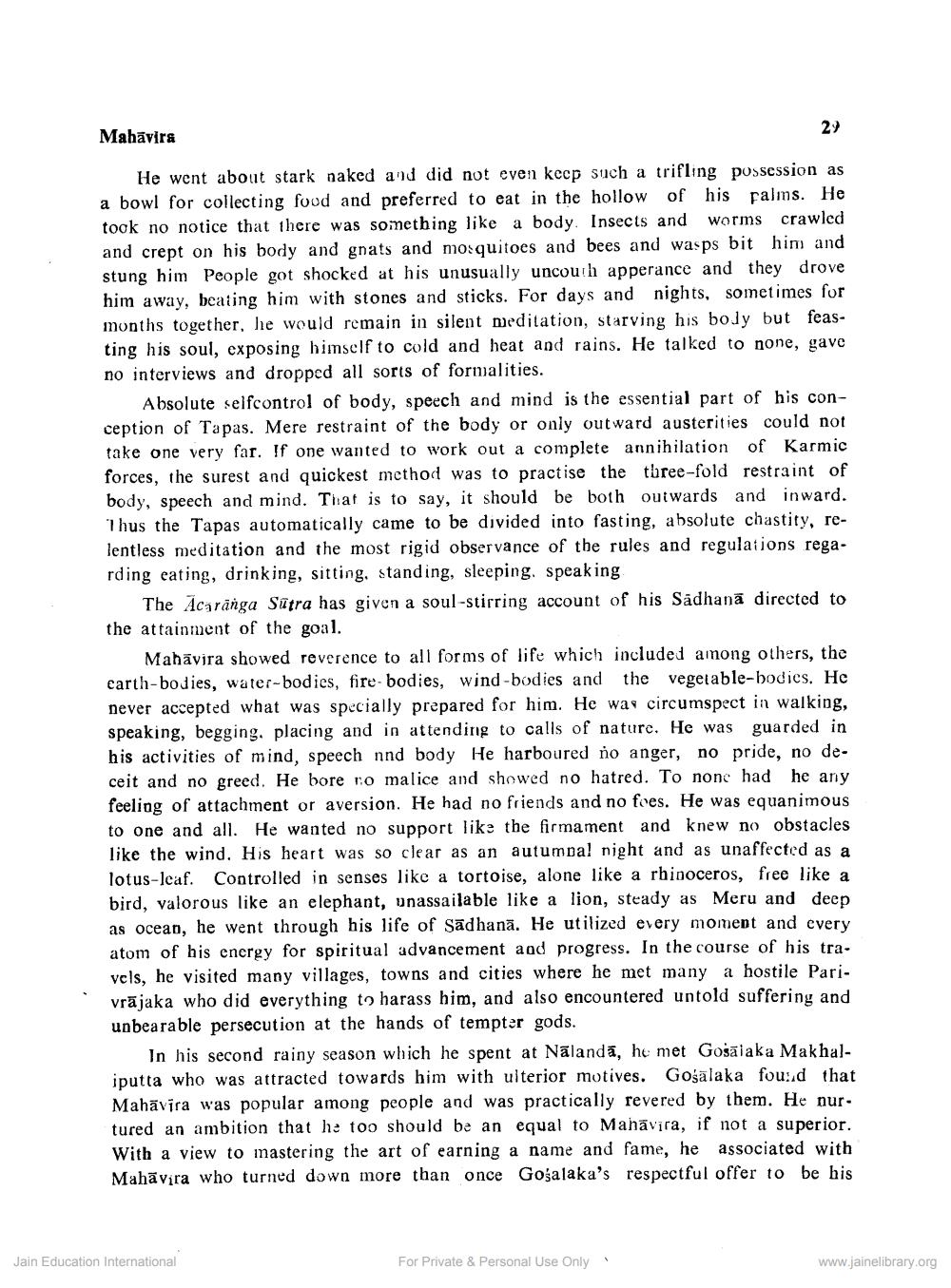________________
Mahāvira
He went about stark naked and did not even keep such a trifling possession as a bowl for collecting food and preferred to eat in the hollow of his palms. He took no notice that there was something like a body. Insects and worms crawled and crept on his body and gnats and mosquitoes and bees and wasps bit him and stung him People got shocked at his unusually uncouth apperance and they drove him away, beating him with stones and sticks. For days and nights, sometimes for months together, he would remain in silent meditation, starving his body but feas ting his soul, exposing himself to cold and heat and rains. He talked to none, gave no interviews and dropped all sorts of formalities.
29
Absolute selfcontrol of body, speech and mind is the essential part of his conception of Tapas. Mere restraint of the body or only outward austerities could not take one very far. If one wanted to work out a complete annihilation of Karmic forces, the surest and quickest method was to practise the three-fold restraint of body, speech and mind. That is to say, it should be both outwards and inward. Thus the Tapas automatically came to be divided into fasting, absolute chastity, relentless meditation and the most rigid observance of the rules and regulations regarding eating, drinking, sitting, standing, sleeping, speaking.
The Acaränga Sutra has given a soul-stirring account of his Sadhana directed to the attainment of the goal.
Mahavira showed reverence to all forms of life which included among others, the carth-bodies, water-bodies, fire bodies, wind-bodies and the vegetable-bodies. He never accepted what was specially prepared for him. He was circumspect in walking. speaking, begging. placing and in attending to calls of nature. He was guarded in his activities of mind, speech and body He harboured no anger, no pride, no deceit and no greed. He bore no malice and showed no hatred. To none had he any feeling of attachment or aversion. He had no friends and no fees. He was equanimous to one and all. He wanted no support like the firmament and knew no obstacles like the wind. His heart was so clear as an autumnal night and as unaffected as a lotus-leaf. Controlled in senses like a tortoise, alone like a rhinoceros, free like a bird, valorous like an elephant, unassailable like a lion, steady as Meru and deep as ocean, he went through his life of Sadhana. He utilized every moment and every atom of his energy for spiritual advancement and progress. In the course of his travels, he visited many villages, towns and cities where he met many a hostile Parivrajaka who did everything to harass him, and also encountered untold suffering and unbearable persecution at the hands of tempter gods.
In his second rainy season which he spent at Nalanda, he met Gosalaka Makhaliputta who was attracted towards him with ulterior motives. Gośalaka found that Mahavira was popular among people and was practically revered by them. He nurtured an ambition that he too should be an equal to Mahavira, if not a superior. With a view to mastering the art of earning a name and fame, he associated with Mahavira who turned down more than once Gojalaka's respectful offer to be his
Jain Education International
For Private & Personal Use Only
www.jainelibrary.org




